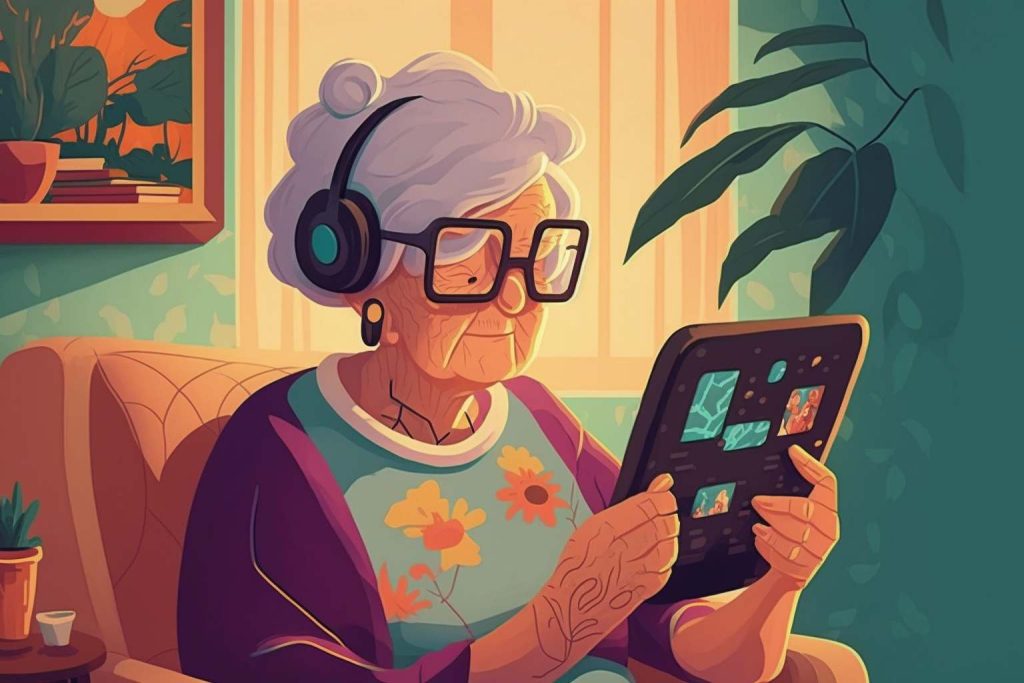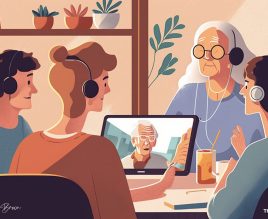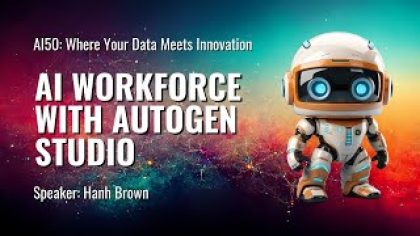Table of Contents
ToggleAging with dignity, independence, and autonomy is a vital aspect of ensuring seniors maintain their quality of life, self-esteem, and overall well-being. As the global population continues to age, there is a growing need for innovative solutions that address the unique challenges faced by older adults. Artificial intelligence (AI) has emerged as a promising technology with the potential to significantly impact the aging experience, allowing seniors to lead more fulfilling and independent lives.
The potential of AI in supporting the goals of dignity, independence, and autonomy is immense. AI-driven solutions can be tailored to the specific needs of seniors, providing them with personalized assistance and enhancing their ability to carry out daily tasks. By harnessing the power of AI, seniors can maintain control over their lives, participate in their communities, and enjoy a higher quality of life as they age.
This article provides an in-depth exploration of the various AI-driven solutions available for seniors, highlighting the ways in which AI can promote independence, autonomy, and dignity in aging. By understanding the transformative potential of AI in the context of aging, we can envision a future where seniors are empowered to live their lives to the fullest, making the most of their golden years.
AI and Independence in Daily Living

In today’s fast-paced world, AI plays a crucial role in enhancing seniors’ independence and autonomy in their daily lives. These technologies and AI-based personal assistants can assist older adults in managing their households, staying connected with loved ones, and maintaining their independence as they age.
Smart Home Technologies for Seniors
Smart home technologies have revolutionized the way we live, and for seniors, they offer numerous benefits that can greatly improve their quality of life. These technologies are designed to make homes more comfortable, safe, and efficient, allowing older adults to maintain their independence and age in place.
One of the key advantages of smart home technologies is their ability to automate routine tasks. For example, smart lighting systems can be programmed to turn on and off at specific times or respond to voice commands, making it easier for seniors to navigate their homes safely. Similarly, smart thermostats can regulate temperature automatically, ensuring a comfortable living environment while saving on energy costs.
Smart home security systems provide peace of mind for seniors and their families by monitoring for potential hazards such as break-ins, fires, or gas leaks. These systems can send real-time alerts to the homeowner and designated emergency contacts, facilitating a swift response to any incidents.
Additionally, smart home technologies can be integrated with wearable devices to track seniors’ health and well-being. For instance, wearable sensors can monitor heart rate, sleep patterns, and physical activity, providing valuable insights into a senior’s overall health and prompting timely interventions if needed.
AI-based Personal Assistants and Virtual Companions
AI-based personal assistants and virtual companions are another innovative solution that can significantly enhance seniors’ independence and autonomy. These AI-powered tools can help seniors manage their daily tasks, stay organized, and maintain social connections, all while providing a sense of companionship.
Personal assistants such as Amazon’s Alexa, Google Assistant, and Apple’s Siri can be programmed to help seniors with a wide range of tasks, including setting reminders for medication, scheduling appointments, and providing weather updates. With simple voice commands, seniors can control smart home devices, make phone calls, or access their favorite music and audiobooks.
Virtual companions, on the other hand, offer more than just practical assistance. These AI-driven platforms, such as ElliQ or CareCoach, provide seniors with a conversational partner, helping to combat feelings of loneliness and isolation. Some virtual companions can even recognize and respond to users’ emotions, providing empathetic and engaging interaction.
Both smart home technologies and AI-based personal assistants have the potential to significantly improve seniors’ independence and autonomy, allowing them to lead more fulfilling lives as they age. By embracing these AI-driven solutions, seniors can maintain control over their daily lives and continue to enjoy the comforts of their own homes.
Also Read: AI in Finding Meaning and Purpose During the Golden Years
AI and Autonomy in Healthcare

AI’s transformative potential extends beyond daily living and into the realm of healthcare, where it can help seniors maintain autonomy over their health and well-being. By leveraging AI-driven remote monitoring and telehealth services, as well as AI-powered mobility and rehabilitation solutions, seniors can access personalized healthcare while preserving their independence.
AI-driven Remote Monitoring and Telehealth
Remote monitoring and telehealth services have emerged as crucial tools in providing seniors with accessible and timely healthcare. AI-driven systems can monitor vital signs, track medication adherence, and detect anomalies in daily routines, all while minimizing the need for in-person visits to healthcare providers.
AI-driven remote monitoring systems can collect and analyze data from wearable devices, such as smartwatches or fitness trackers, to identify potential health issues. This real-time monitoring allows healthcare professionals to intervene proactively and adjust treatment plans accordingly, resulting in more personalized and effective care.
Telehealth services, facilitated by AI-powered platforms, offer seniors the opportunity to consult with healthcare providers via video conferencing, phone calls, or messaging apps. These virtual appointments allow seniors to access medical care from the comfort of their homes, reducing the burden of transportation and decreasing the risk of exposure to infectious diseases.
AI-powered Mobility and Rehabilitation Solutions
Mobility and rehabilitation play a crucial role in maintaining seniors’ autonomy and quality of life. AI-powered solutions can assist in addressing mobility challenges and providing personalized rehabilitation programs tailored to seniors’ specific needs.
AI-enhanced mobility aids, such as smart wheelchairs and exoskeletons, can adapt to individual users and offer customized support. These devices use AI algorithms to analyze users’ movements and provide real-time feedback, ensuring optimal performance and safety. For example, smart wheelchairs can navigate complex environments autonomously, allowing seniors to move around more independently.
AI-powered rehabilitation solutions offer personalized exercise programs that target specific areas of improvement, such as balance, strength, or flexibility. These programs leverage AI algorithms to analyze users’ progress and adjust exercises accordingly, ensuring that seniors receive the most effective and engaging rehabilitation experience possible.
In summary, AI-driven remote monitoring, telehealth, and mobility solutions can greatly enhance seniors’ autonomy in healthcare. By providing personalized, accessible, and timely care, these AI-powered innovations empower seniors to take control of their health and well-being, promoting independence and dignity in the aging process.
AI in Senior Living and Community Support

AI can play a transformative role in senior living communities and promote social connections among the aging population. Artificial intelligence-enhanced living environments and AI-driven tools for fostering social interaction can significantly improve seniors’ quality of life, combating feelings of isolation and loneliness.
AI-enhanced Senior Living Communities
AI-enhanced senior living communities harness the power of technology to create safe, comfortable, and engaging environments for their residents. These communities integrate AI-driven solutions, such as smart home technologies, remote health monitoring, and personalized care, to provide a holistic approach to senior living.
In these communities, AI can be used to monitor residents’ daily routines and detect anomalies, allowing caregivers to intervene proactively and provide timely assistance. Moreover, AI-driven security systems ensure the safety of residents, while smart home devices create a comfortable living environment tailored to individual preferences.
AI-enhanced senior living communities also prioritize social engagement and well-being. By using AI algorithms to analyze residents’ interests and social preferences, these communities can develop personalized activity schedules and facilitate meaningful connections among residents, promoting a sense of belonging and purpose.
AI and Social Connection for Aging Population
AI-driven tools can also foster social connections for seniors living independently or in senior living communities. These tools, such as virtual companions and AI-powered communication platforms, can help seniors maintain their social networks, even as their mobility and cognitive abilities decline.
Virtual companions, as mentioned earlier, provide seniors with an engaging conversational partner, reducing feelings of loneliness and isolation. AI-powered communication platforms, on the other hand, can help seniors stay connected with family and friends by simplifying the use of video calls, messaging apps, and social media.
Real-Life Examples and Anecdotes
As we delve into the world of artificial intelligence and its impact on eldercare, it’s essential to ground the discussion in a real-world context. The transformative effect of AI becomes more tangible through practical illustrations and narratives. Let’s explore some real-life examples and anecdotes that demonstrate how AI fosters independence among seniors.
Smart home technology adoption by seniors
One inspiring example is that of an 82-year-old woman who embraced smart home technology to maintain her independence despite her declining mobility. By using voice-activated devices to control her lighting, thermostat, and security system, she was able to continue living comfortably and safely in her own home, preserving her autonomy and dignity.
AI-driven telehealth success stories
In the midst of the COVID-19 pandemic, a 76-year-old man with chronic heart failure was able to manage his condition effectively through AI-driven telehealth services. By monitoring his vital signs remotely and attending virtual appointments with his healthcare providers, he was able to receive timely care and avoid unnecessary hospital visits, ultimately improving his quality of life.
A senior living community embracing AI solutions
A forward-thinking senior living community in the United States has integrated AI-driven solutions into its daily operations, significantly enhancing residents’ well-being. By using AI to monitor residents’ routines, personalize activities, and facilitate social connections, the community has created a supportive and engaging environment that promotes independence, autonomy, and dignity for its residents.
Implications and Future Developments
As AI continues to evolve, its potential to support seniors in achieving independence, autonomy, and dignity will expand, offering innovative solutions to various challenges.
AI-driven Innovations on the Horizon
Emerging AI-driven innovations promise to further enhance seniors’ quality of life. For instance, researchers are developing AI-powered robots capable of providing personalized care, from medication reminders to physical assistance. Additionally, AI algorithms are being used to predict and prevent falls, a leading cause of injury among older adults.
Another promising development is the use of AI to detect early signs of cognitive decline or dementia. By analyzing speech patterns, facial expressions, and other subtle cues, AI has the potential to identify early warning signs and facilitate timely intervention, ultimately improving seniors’ health outcomes.
AI is also being leveraged to create more advanced telehealth platforms, enabling seniors to access comprehensive healthcare services from the comfort of their homes. With the integration of AI-driven diagnostics, remote monitoring, and even virtual reality for rehabilitation purposes, these platforms can provide a holistic approach to healthcare that better meets the needs of the aging population.
Furthermore, AI can help address the issue of social isolation among seniors by developing more sophisticated virtual companions that can engage in meaningful conversations, understand and respond to emotions, and offer tailored recommendations for activities, ultimately fostering a sense of companionship and belonging.
Ethical Considerations and Potential Challenges
Despite AI’s potential benefits, ethical considerations and challenges remain. Issues such as privacy, data security, and the potential for AI to replace human caregivers must be addressed. Ensuring that AI-driven solutions respect seniors’ privacy and maintain the confidentiality of their health data is crucial to fostering trust in these technologies.
Moreover, while AI can assist human caregivers, it cannot fully replace the emotional support and empathy that human interaction provides. Striking a balance between AI-driven care and human connection is essential to maintaining seniors’ well-being and dignity.
Another challenge is the potential for AI-driven technologies to exacerbate existing inequalities, particularly among seniors who lack access to the necessary resources, such as high-speed internet or affordable devices, to take advantage of these solutions. Efforts must be made to ensure that AI-driven eldercare is accessible and inclusive, benefiting seniors from all walks of life.
Lastly, the rapid advancement of AI-driven technologies raises concerns about job displacement for human caregivers. It is essential to consider the potential impact on the caregiving workforce and to explore ways in which AI can be used to complement, rather than replace, human caregiving roles.
Conclusion
The transformative potential of AI in advancing eldercare cannot be understated. Cutting-edge innovations offer a promising outlook for seniors, opening avenues for increased independence, autonomy, and dignity. Everyday living, healthcare, and social connectivity stand as key areas ripe for meaningful disruption. Through intelligent applications, we can provide seniors with an enhanced quality of life. Yet, amidst this technologically-rich horizon, we must not lose sight of the ethical considerations and potential challenges.
Undeniably, these concerns must form a central part of any AI integration strategy. It is our responsibility to navigate these potential pitfalls diligently. Indeed, we must ensure the application of AI technology benefits all seniors, without exception. Failing to do so could cause harm or injustice, undermining the very advantages we aim to achieve. Therefore, the goal remains clear: to implement AI-driven technologies responsibly in eldercare. By focusing on both innovation and ethics, we can achieve a future in which all seniors can thrive in the age of artificial intelligence.
FAQs
How can AI improve independence for seniors?
AI can improve seniors’ independence by automating routine tasks, providing personalized healthcare and monitoring, and offering AI-powered communication and companionship, ultimately helping them maintain control over their daily lives.
What are the ethical concerns surrounding AI and eldercare?
Ethical concerns include privacy, data security, potential job displacement for human caregivers, and the need to strike a balance between AI-driven care and human connection.
Can AI fully replace human caregivers?
AI can provide practical assistance and monitoring, but it cannot fully replace the emotional support and empathy that human caregivers offer. A balance between AI-driven care and human interaction is essential.
What are some potential barriers to AI adoption among seniors?
Barriers may include a lack of technological literacy, skepticism about AI’s benefits, concerns about privacy and data security, and the potential costs associated with adopting AI-driven solutions.
How can AI address the unique needs of the aging population?
AI can address the unique needs of the aging population by offering personalized solutions in daily living, healthcare, and social connection, ultimately enhancing seniors’ independence, autonomy, and dignity.
What are the privacy and security concerns with AI-based eldercare technologies?
Privacy and security concerns include the potential for unauthorized access to seniors’ personal and health data, as well as the misuse of this data by third parties. Ensuring robust data protection measures is crucial to address these concerns.
Reference
- https://www.ncbi.nlm.nih.gov/
- https://www.researchgate
- https://www.jmir.org

















